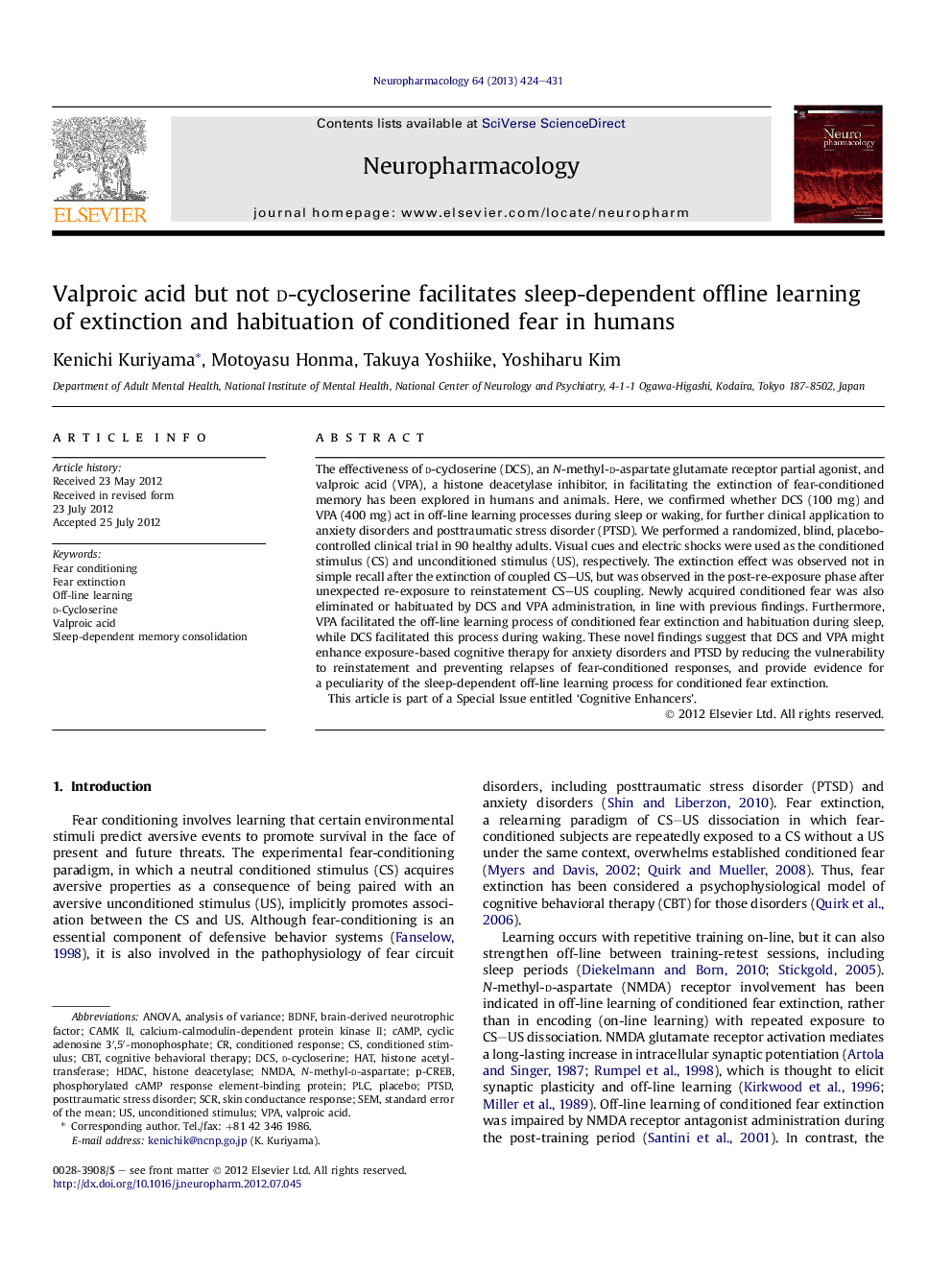| Article ID | Journal | Published Year | Pages | File Type |
|---|---|---|---|---|
| 5815431 | Neuropharmacology | 2013 | 8 Pages |
The effectiveness of d-cycloserine (DCS), an N-methyl-d-aspartate glutamate receptor partial agonist, and valproic acid (VPA), a histone deacetylase inhibitor, in facilitating the extinction of fear-conditioned memory has been explored in humans and animals. Here, we confirmed whether DCS (100Â mg) and VPA (400Â mg) act in off-line learning processes during sleep or waking, for further clinical application to anxiety disorders and posttraumatic stress disorder (PTSD). We performed a randomized, blind, placebo-controlled clinical trial in 90 healthy adults. Visual cues and electric shocks were used as the conditioned stimulus (CS) and unconditioned stimulus (US), respectively. The extinction effect was observed not in simple recall after the extinction of coupled CS-US, but was observed in the post-re-exposure phase after unexpected re-exposure to reinstatement CS-US coupling. Newly acquired conditioned fear was also eliminated or habituated by DCS and VPA administration, in line with previous findings. Furthermore, VPA facilitated the off-line learning process of conditioned fear extinction and habituation during sleep, while DCS facilitated this process during waking. These novel findings suggest that DCS and VPA might enhance exposure-based cognitive therapy for anxiety disorders and PTSD by reducing the vulnerability to reinstatement and preventing relapses of fear-conditioned responses, and provide evidence for a peculiarity of the sleep-dependent off-line learning process for conditioned fear extinction.This article is part of a Special Issue entitled 'Cognitive Enhancers'.
⺠d-Cycloserine (DCS) and valproic acid (VPA) aid in extinction of conditioned fear. ⺠The effects of DCS and VPA on offline learning during sleep and waking were examined. ⺠DCS facilitates offline learning of fear extinction during waking. ⺠VPA facilitates offline learning of fear extinction during sleep.
